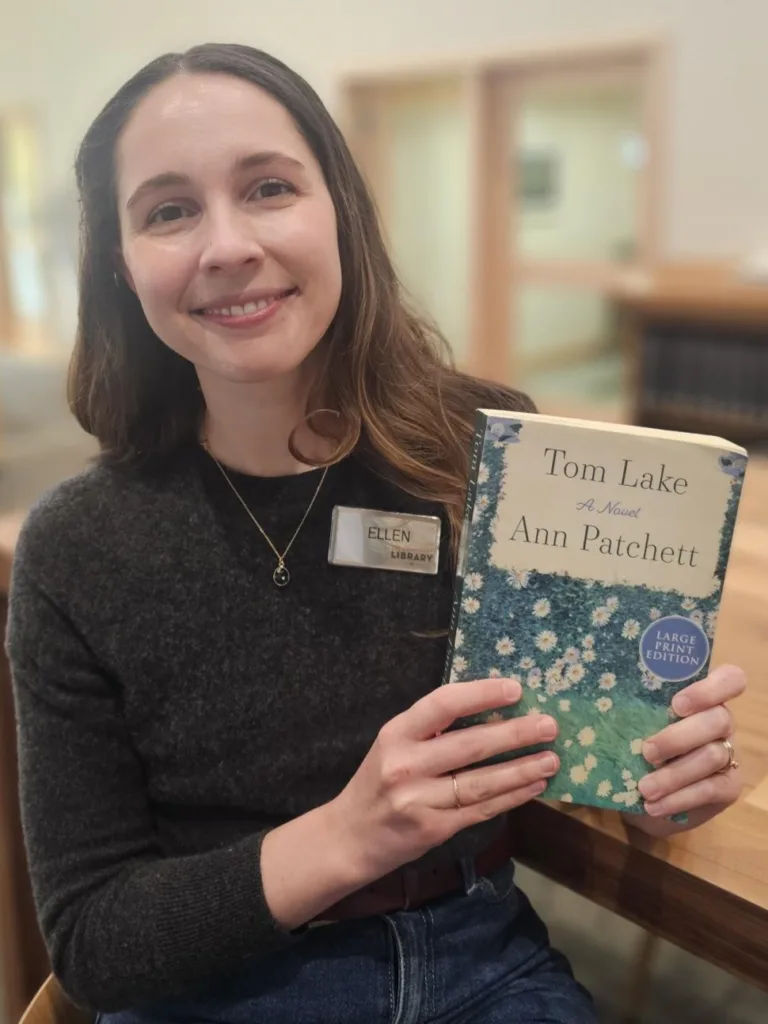Children’s Librarian and Programming Assistant, Ellen O’Dell, recommends Tom Lake by Ann Patchett.

“No plot just vibes” is a new way to describe a classic concept: a novel with little in the way of central conflict but a keen sense of place and time. Some novels included in this genre are Normal People, Mrs. Dalloway, and The Picture of Dorian Grey.
As a particular fan of the “no plot, just vibes” style of storytelling, I recently enjoyed the novel Tom Lake by Ann Patchett. Tom Lake brings the reader to those early, delirious days of the pandemic on a cherry orchard in northern Michigan.
When I first learned that Tom Lake takes place during the spring of 2020, I quickly stopped listening (I borrowed the audiobook narrated by Meryl Streep).
But something about the serenity of the cherry orchard, the familial bond between the characters, and the hazy sense of nostalgia pulled me back.
Patchett writes about this period of history with accuracy and tenderness that does not step too far into the fear and isolation that we were all feeling.
It helps that much of the novel is told in retrospect, as Lara, the main character, recounts the story of her love affair with a famous actor to her three daughters. We have one foot in the present and one in the past with Lara as she relives the whirlwind relationship she had with Peter Duke, a fictional actor, in her mid-twenties. Lara and Peter are a part of the same summer theater group performing the play “Our Town.” While “Our Town” features prominently in this story, it is not necessary to have read it before picking up Tom Lake.
Her daughters ask their mother questions about her life before children, wondering if she feels like she missed a life of wealth and glamour with Peter Duke. Lara thinks to herself, “There is no explaining this simple truth about life: you will forget much of it. The painful things you were certain you’d never be able to let go? Now you’re not entirely sure when they happened, while…
…the thrilling parts, the heart-stopping joys, splintered and scattered and became something else.”
She tells her girls that as her life went on, she evolved into someone with completely new desires and goals, shedding past versions of herself all the time, and that she cannot imagine things having gone in any other direction. Lara feels a profound sense of peace with her life on the farm.
Tom Lake has a little something for everyone—I felt like I could relate to the three daughters, each having their lives halted when the world shut down. The novel also beautifully describes the pains and joys of motherhood, the bucolic wonder (and daily stress) of life on a farm, and the exciting lives of performing artists.
Upon finishing the book, I wanted to dive back into the world that Patchett built (especially on these chilly winter evenings)—not for the fast-paced plot, but for the vibes of summer in northern Michigan.
Are you curious about Tom Lake? Join us for The Community Library Book Club on April 3, 2024, to discuss the novel!
